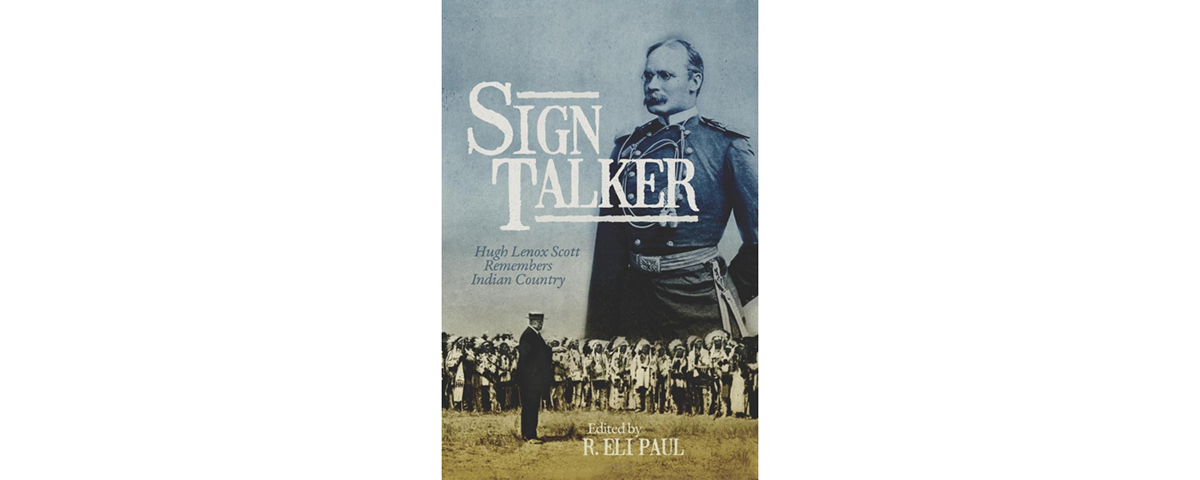Sign Talker: Hugh Lenox Scott Remembers Indian Country, edited by R. Eli Paul, University of Oklahoma Press, Norman, 2016, $29.95
Hugh Lenox Scott graduated from the U.S. Military Academy at West Point in 1876, served in the 7th U.S. Cavalry—he helped mark the graves of the Little Bighorn dead in 1877—and later served as West Point superintendent and, during World War I, Army chief of staff. As a frontier cavalry officer he respected Indian cultures and became something of a sign language expert. He went on to befriend artist Frederic Remington, cowboy actor Tim McCoy, showman Buffalo Bill Cody and President Grover Cleveland. Yet this “intriguing character,” as R. Eli Paul calls him, has remained an obscure historic footnote.
Paul gives Scott his due in this abridged, annotated version of Scott’s autobiography, Some Memories of a Soldier, first published in 1928, six years before the author’s death. Sign Talker tracks Scott from birth through his service out West. That shorter focus is a must, as his original memoir exceeds 200,000 words. “How does one say this politely?” Paul writes. “Scott has too many memories.”
His memories of frontier service, however, are exceptional. Scott became so adept at sign language, a Comanche called him Molay tay-quop (He Talks With His Hands, or Sign Talker) Scott had “a deep empathy for the wrongs [Indians] had suffered,” Paul writes.
—Johnny D. Boggs





